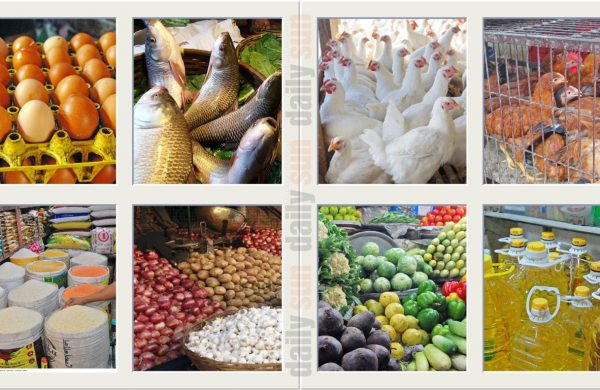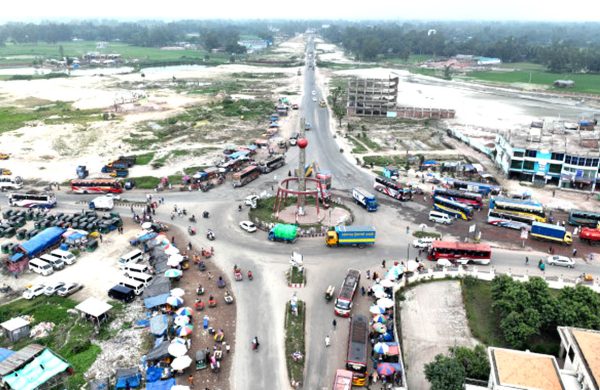Skyrocketing food prices deepen malnutrition crisis
- Update Time : Wednesday, October 16, 2024
- 103 Time View

TDS Desk
As Bangladesh observes World Food Day on Wednesday, concerns over food security, affordability and malnutrition are intensifying due to soaring food prices.
The significant rise in essential food costs has left low-income and fixed-income families particularly vulnerable, worsening malnutrition, experts say.
World Food Day, celebrated annually on 16 October, raises awareness about global hunger and malnutrition.
This year’s theme, “Right to Food for a Better Life,” underscores food as a fundamental human right. However, in Bangladesh, skyrocketing prices have clouded the observance of this day, with many struggling to afford even basic nutrition.
According to agro-economist Dr Jahangir Alam Khan, high prices are preventing consumers from purchasing protein-rich foods like eggs, milk and meat.
“If people cannot afford essential nutrients, their health and productivity will suffer,” he said, emphasising that the government’s incentives for local farmers and improved import policies are critical to stabilising prices.
A visit to local markets in Dhaka reveals sharp increases in prices of vegetables, poultry and eggs. Vegetables like green chillies are being sold for as high as Tk500 per kilogram, while the price of farm eggs has skyrocketed to Tk180-190 per dozen. Poultry prices have also surged, with broiler chicken costing Tk190-200 per kilogram.
Despite the government’s effort to cap prices of essentials like eggs, broiler chickens and Sonali chickens, prices continue to rise due to supply disruptions caused by weather events such as floods and untimely rains.
Traders blame these factors, but consumer rights groups argue that market syndicates and unscrupulous profit-seeking are exacerbating the crisis.
According to S M Nazer Hossain, vice president of the Consumers Association of Bangladesh (CAB), businessmen and traders are manipulating the market, further straining the finances of low-income households.
“Syndicates are artificially inflating food prices, forcing families to cut back on essential items,” he added.
Bangladesh has also slipped three places in the 2024 Global Hunger Index, ranking 84th out of 127 countries, reflecting a “moderate” level of hunger. Nearly 12% of the population is undernourished and over 23% of children under five suffer from stunting. The situation is likely to worsen if food inflation continues unchecked.
Experts stressed that the high cost of food is a multifaceted crisis, affecting everything from nutrition to overall economic stability. The rising prices, exacerbated by market manipulation and supply chain disruptions, are putting increasing pressure on families to meet their basic nutritional needs.
In the kitchen markets, most vegetables are now sold for over Tk100 per kg, with some priced between Tk200 and Tk500 per kg.
Green chillies have reached an alarming price of Tk500 per kg, while large round brinjals are sold at Tk180 per kg.
Imported tomatoes are priced at Tk260 per kg, and beans at Tk200 per kg. Yardlong beans range between Tk120-140 per kg, pointed gourd is priced at Tk100 per kg, okra and radish are Tk80 per kg and green papayas are available for Tk50-60 per kg. Ribbed gourds, bitter gourds and sponge gourds are sold for Tk100-110 per kg, while cauliflower and cabbage are priced at Tk80 per piece.
Farm egg prices have surged to Tk180-190 per dozen, up from Tk160-165 per dozen at the end of last month and Tk 150-155 per dozen in early September.
Broiler chicken prices have also risen to Tk190-200 per kg, with Sonali chicken priced at Tk280 per kg. In contrast, during the last week of August, broiler chicken was sold for Tk160 per kg and Sonali chicken for Tk260 per kg.
The government had previously set retail prices at Tk11.87 per egg, Tk269.64 per kg for Sonali chicken, and Tk179.59 per kg for broiler chicken, yet market prices remain significantly higher.



















